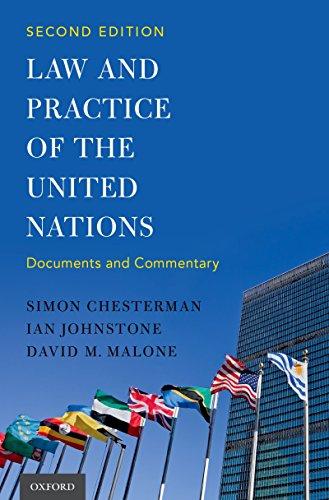Question
Parties Plaintiff: Paulina Jones (State employee) Defendant: Ex-President of United States William Clinton Facts Paula Jones filed a civil action against President Clinton alleging that
Parties
Plaintiff: Paulina Jones (State employee)
Defendant: Ex-President of United States William Clinton
Facts
Paula Jones filed a civil action against President Clinton alleging that he made sexual advances towards her. Because of the claim, Clinton sought to dismiss or delay the claim on the grounds of presidential immunity. As we have come to find out, the separation of powers doctrine does not provide complete presidential immunity from private suits for official and unofficial acts, therefore the sitting president could be brought up on charges.
Procedure
Plaintiff Paula Jones filed suit in federal district court against defendant Bill Clinton alleging that he made "abhorrent" sexual advances. The defendant William Jefferson Clinton filed motions asking the district court to dismiss the claim on the ground of presidential immunity or to delay the case proceedings until the expiry of his presidential term in office.
The District Court denied the motion to dismiss and ordered for discovery to proceed, but also allowed that no trial would take place until the end of his term.
The Court of Appeals affirmed the denial of the motion to dismiss and reversed the stay of the trial. William Jefferson Clinton brought the appeal to the Supreme Court of the United States.
Two key issues are critical for turning of this case:
1. Did the defendant make the "abhorrent" sexual advances that the plaintiff claimed to have been done? After the case was sent back for trial on merits, it was dismissed because the plaintiff failed to state the claim of criminal sexual assault or sexual harassment.
2. Did the defendant get a fair punishment as he was a President of the United States? Would there be a favor on the President side? There are many laws that protect the president as long as he is performing official acts and he would always get a fair trial and fair punishment.
Applicable Laws
Separation of Powers
President Clinton at the time argues to postpone the trail until the end of his term. President Clinton argued that his responsibilities were so vast and important and that the public devotes his time and attention to his public duties. In Clinton's argument, the separation of powers limits on the authority of the federal judiciary to interfere with the executive branch (Kubasek, Brennan, & Brown, 2017, p. 108).
Separation of Powers refers to the division of governments into three distinct branches to limit one branch from exercising another branches function. The reason for this separation is to prevent concentration of power and provide for checks and balance (Separation of Powers, n.d.).
Presidential Immunity
Defendant Clinton tried to dismiss the claim on the grounds of presidential immunity (Kubasek, Brennan, & Brown, 2017, p. 107). The Court dismisses this claim of presidential immunity on the grounds that Presidential immunity only applies to official acts of a president. According to the textbook, presidents were entitled to absolute immunity from damages liability predicated on his official acts (Kubasek, Brennan, & Brown, 2017).
Holding
The Supreme Court reviewed the case and heard both party's argument and rules in favor of the plaintiff as president's immunity did not deem applicable to the case.
Reasoning
The Court felt the alleged risks that this decision will be in line with public service immunity, as no concerns were preventing President to defend the case and told if Congress deems it appropriate for stronger protection for the president, it needs to respond with legislation. There is a separation of power between the executive branch and the judicial branch; thus, the President cannot grant immunity for himself. "The courts have inherent ability to do all things reasonably necessary for the administration of justice. Specific issues must be resolved in a judicial proceeding or are part of the inherent judicial power. The other branches of the government may not interfere with the courts in the performance of their duties. The legislature, however, may pass statutes that relate to the core functions of the judiciary without impermissibly invading them. (Burris, 2001)
Step by Step Solution
There are 3 Steps involved in it
Step: 1

Get Instant Access to Expert-Tailored Solutions
See step-by-step solutions with expert insights and AI powered tools for academic success
Step: 2

Step: 3

Ace Your Homework with AI
Get the answers you need in no time with our AI-driven, step-by-step assistance
Get Started


